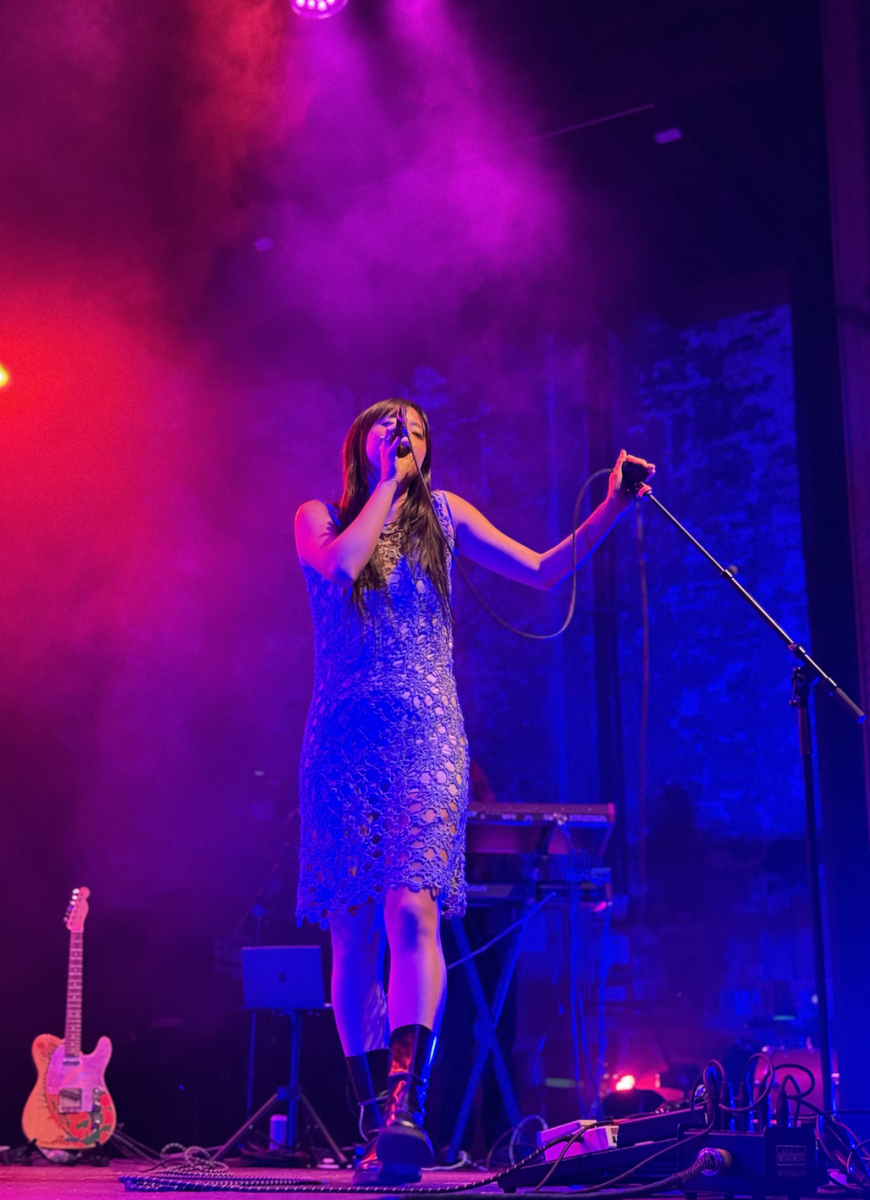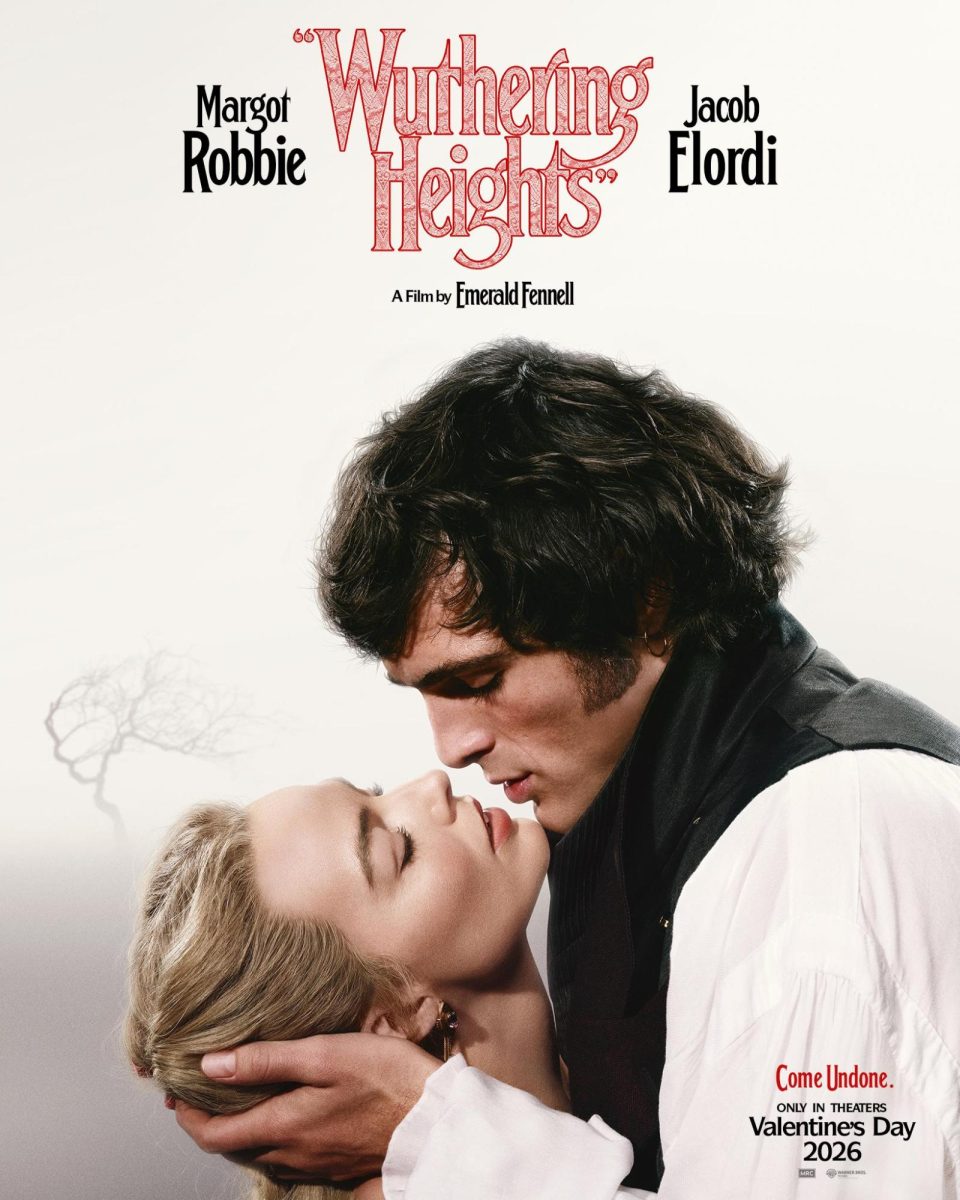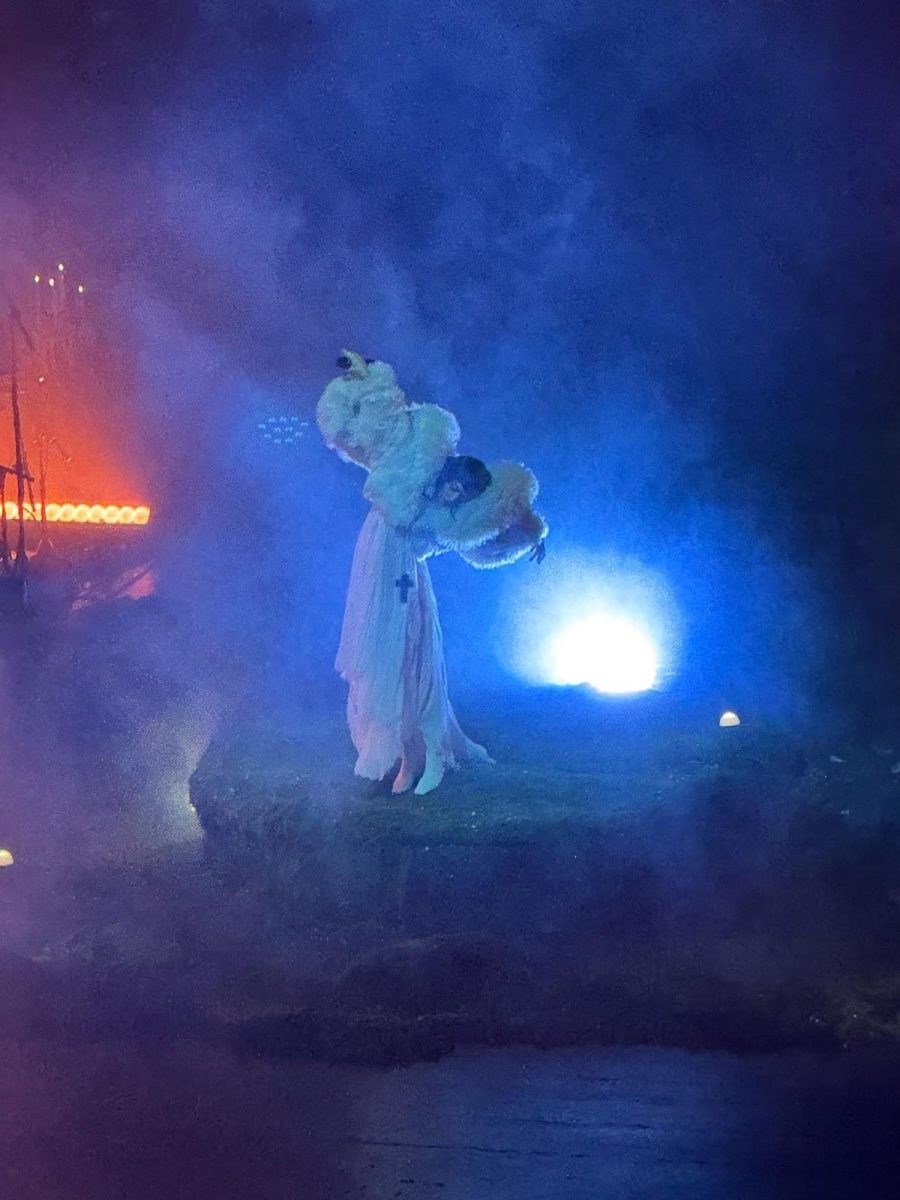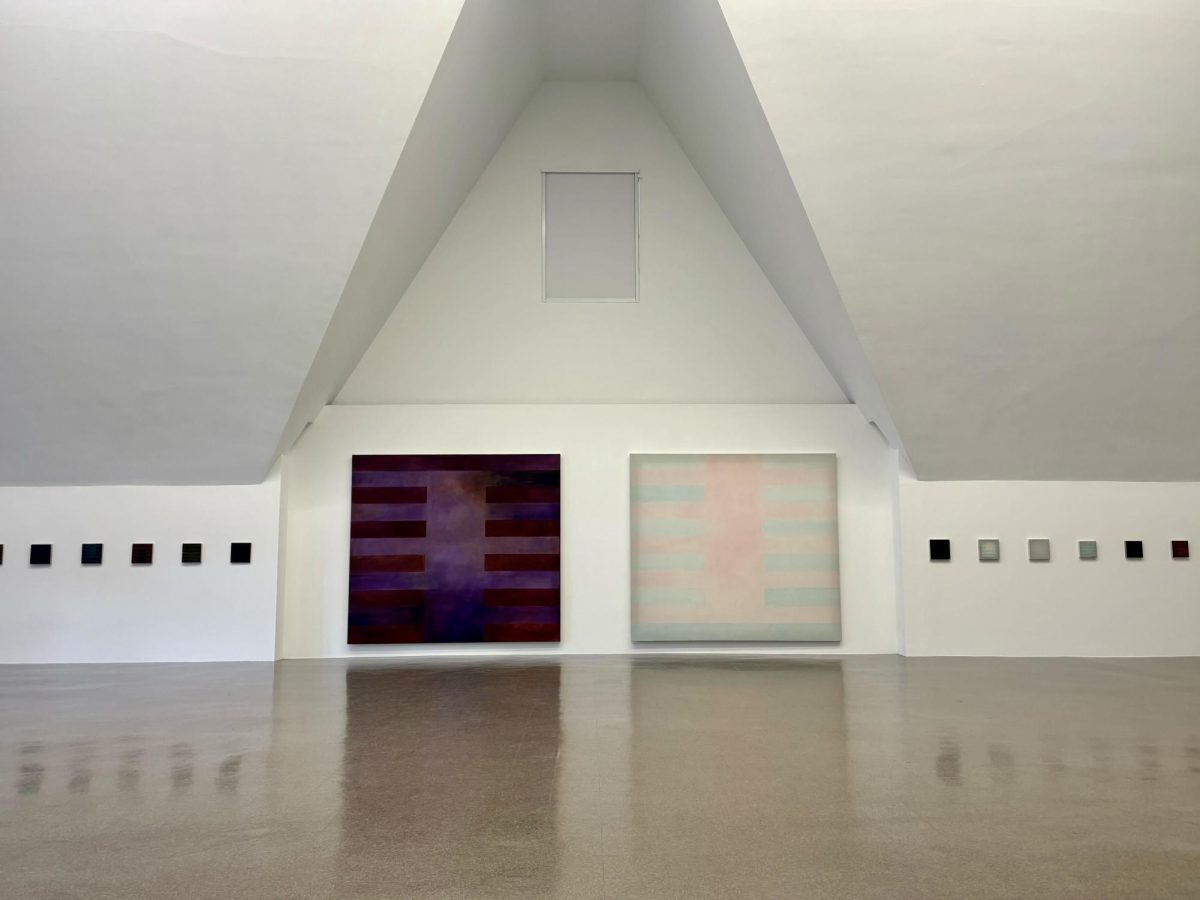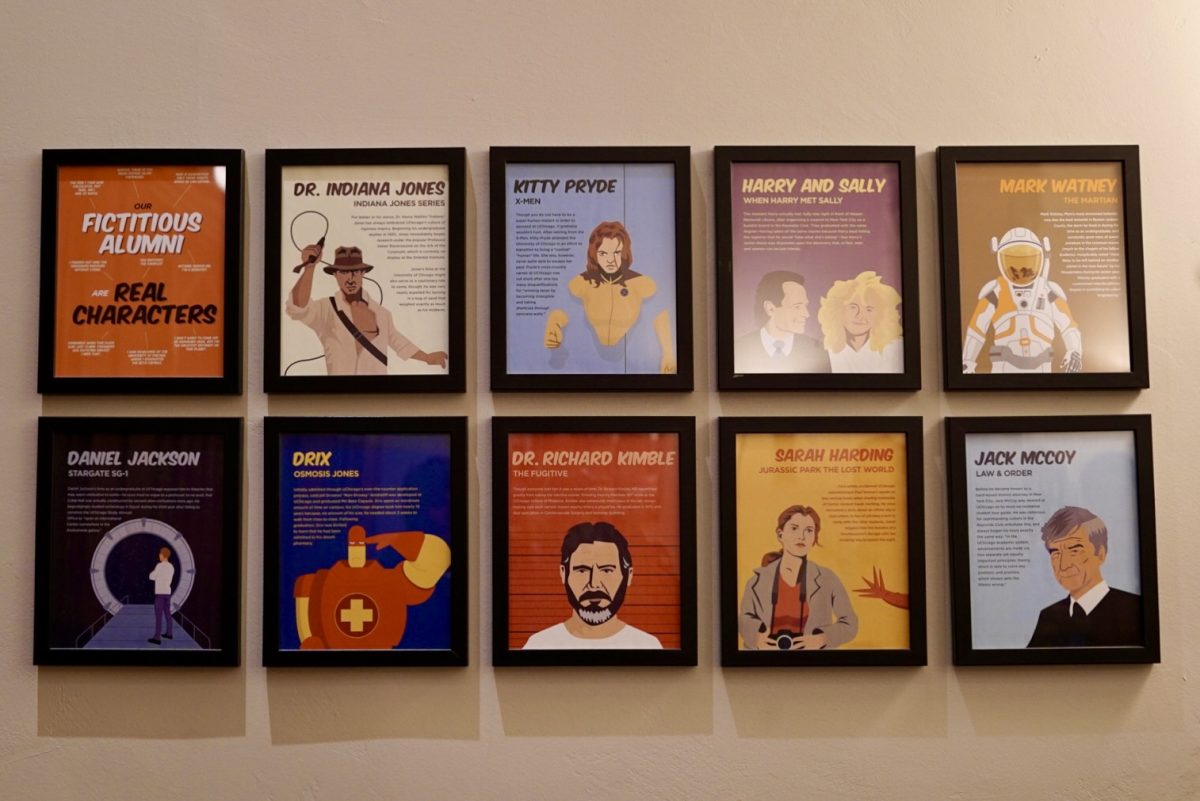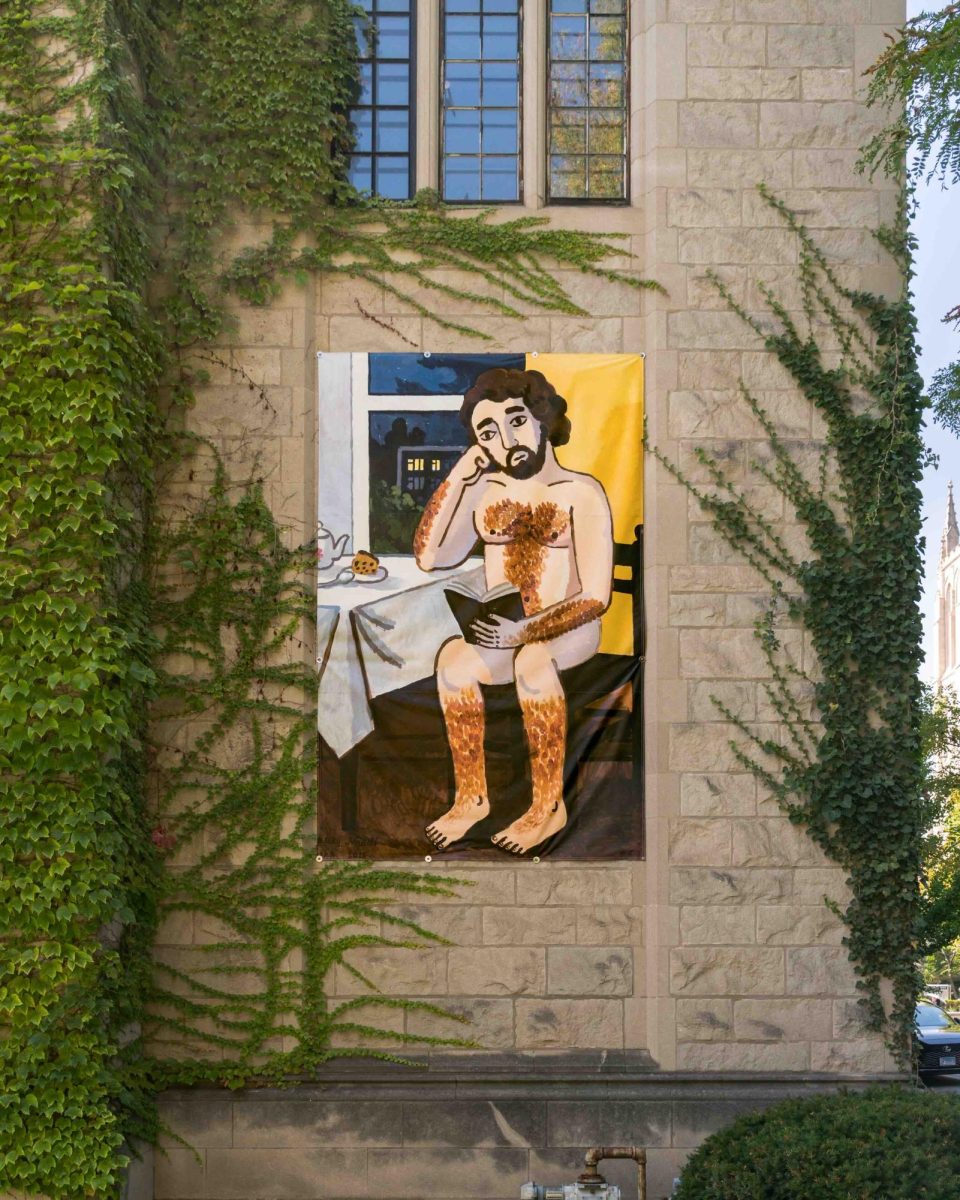If you were to look up the internet’s description of Sarah Kinsley’s music, you would often come across three words: ethereal, otherworldly, relatable. All three of those descriptors fit her music; they’re found in Kinsley’s metaphorical lyrics, her frequent use of contact mics, and her flurried mix of piano and synths. But it was hard to imagine how her alternative synth-pop sound would be translated onto a live stage.
“I’m excited to hear her music,” one of the security guards told me as we were waiting for Kinsley’s entrance. There was a sense of calmness in the audience’s anticipation that I hadn’t quite experienced with other artists’ audiences in this demographic—late high school to early twenties, mostly women (that is, me). It was peaceful.
The stage lights turned blue, and shadowy band members stepped on the stage. At the opening to “Lovegod,” a haunting patchwork of synth sounds, the crowd cheered. Kinsley danced—or rather, seemed to float—onto the stage. In front of the mic, her hands danced in the air as she crooned the chorus: “Lovegod, send me someone / send me anyone to close the mountain inside / Lovegod, send me someone / send me anyone to kiss away the forces of my mind.” The lyrics detail an encounter with a “prick” in a bar, who the lonely protagonist gives a chance to for the sake of filling a somebody-sized hole in her heart. “Delay the feeling,” she sings repeatedly into her microphone.
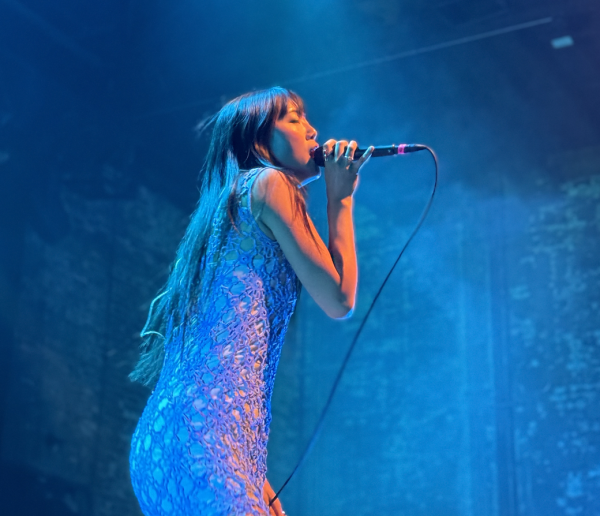
Kinsley’s setlist was comprised mostly of songs from her debut album, Escaper, released in September. Fully written and co-produced by Kinsley herself, the album explores grief and loss in all of its forms—from friendships, romantic relationships, and familial ties. I first encountered Kinsley’s music through the media that many of us now encounter new artists through: TikTok. At the time, Kinsley was a student at Columbia self-producing and writing songs from her college bedroom. One graduation, several viral videos, and a record deal later, Escaper has received rave reviews from critics and longtime fans alike. Watching her as she twirled and romped across the stage, it was easy to understand why.
“Last Time We Never Meet Again,” a single from her album, was an easy standout at the concert, a song that explores the reckoning of letting somebody go while wanting the best for them. “I hope you get everything you wanted,” the artist sang. “I hope the universe bends down to offer itself to you / But for myself / I hope I hear your name and feel—” she pointed her mic to the audience “—absolutely nothing!” they chanted back.
As her set continued and the crowd progressively grew in enthusiasm, Kinsley appeared to be in pain—though it was not evident in her voice. An hour or so into the concert, she told the audience that she had come down with a cold and that she was struggling to sing and preserve her voice. Profusely apologizing, she announced that she would be cutting the set short after two more songs—to which the audience responded, warmly, with a string of “Take care of yourself”s and “We love you’s.” Through tears, Kinsley closed out her set with “The King” and “Oh No Darling!” with a seemingly crystal-clear voice despite her condition.
Sarah Kinsley’s music is indeed ethereal, otherworldly, and relatable. As I watched the crowd passionately sway with the music, and Kinsley dance on stage, those elements were arguably even more palpable. But it was clear that the draw of Kinsley’s artistry is in the heart that she infuses into her work. She closed her eyes and rode the waves of the music as if the lyrics were coursing through her. She was overcome with emotion when the audience sang her lyrics for her at the end of her shorter-than-usual set. So perhaps there’s another word to add to the original three: passionate.



